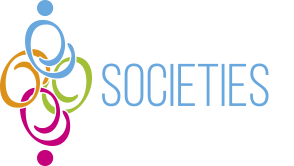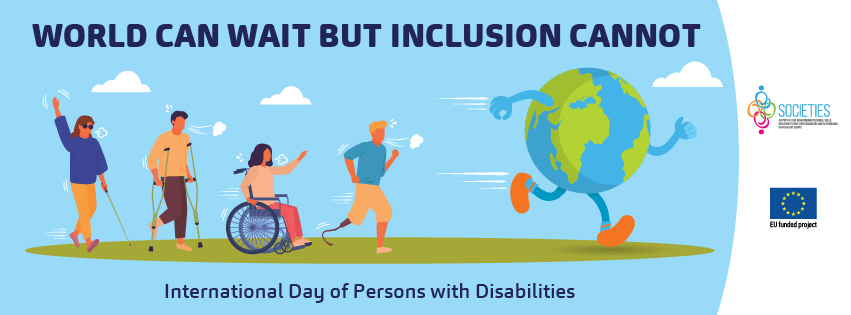The International Day of Persons with Disabilities is one of the most prominent dates in the calendar for everyone to be reminded of the importance of inclusiveness as one of the essential properties of a truly developed society, based on the respect for diversity, humanism, social justice and equal opportunities for each and every human being, regardless of their particular identity traits, various impairments including.
Referring to several documents, such as the UN Committee on the Rights of Persons with disabilities reports, international and national official statistical data, different policy documents, and confirmed by regional surveys carried out by project SOCIETIES, Western Balkans countries share similar challenges and opportunities on their way towards a welfare state. Countries in our region are not investing enough in social protection services. Despite their undeniable and irreplaceable expertise in the field of disability, civil society organizations are not sufficiently supported and are not adequately involved in decision-making processes. This compromises the climate of public dialogue and the quality of laws and political documents. Most services provided by the civil sector are at risk of closure, due to the constant lack of financial sustainability.
The process of deinstitutionalization is not going at the due pace, and adequate funds have to be put at community-based services disposal for those leaving institutions in order for them to lead a fully independent life.
Supplies of mobility aids to increase chances for persons with disabilities to live independently. A well-resourced inclusive education, equal vocational training and employment opportunities and a greater involvement of persons with disabilities in the political and public life are other issues that remain to be tackled urgently.
As if the above-mentioned issues were not enough, the COVID-19 pandemic has added more misery to the lives of tens of thousands of persons with disabilities and their families, due to the fact that governments failed to acknowledge the additional impact it inevitably would have on this vulnerable group, and consequently to take the proper measures to mitigate that impact.
The adherence of all – but one – WB countries to the Convention on the Rights of Persons with Disabilities, as well as their political commitment to joining the EU as soon as possible, dictate the need for governments to make significant interventions aiming at a strong and concrete impact in the everyday life of people with disabilities across the region. Good laws must be followed by their full respect and implementation, and a gradual re-structuring of public finances aiming at a more socially-inclined state should be seen as a key factor for a better tomorrow for people with disabilities.
There are various examples of good practice in the Western Balkans that should be accepted and disseminated in other countries. The SOCIETIES 2 project, implemented by a consortium of civil society organizations, led by the Caritas network and funded by the European Union, creates an opportunity for joint learning, exchange of experiences and advocacy for people with disabilities.
The campaign “The world can wait, but inclusion cannot” is a campaign conducted to raise public awareness of the needs of people with disabilities and the importance of social inclusion.
Now is the time for the Western Balkans to enter the group of countries with advanced social standards, even at the expense of slower economic development. Progress without inclusion is an illusion.
A society that excludes people with disabilities is a society with disabilities.

